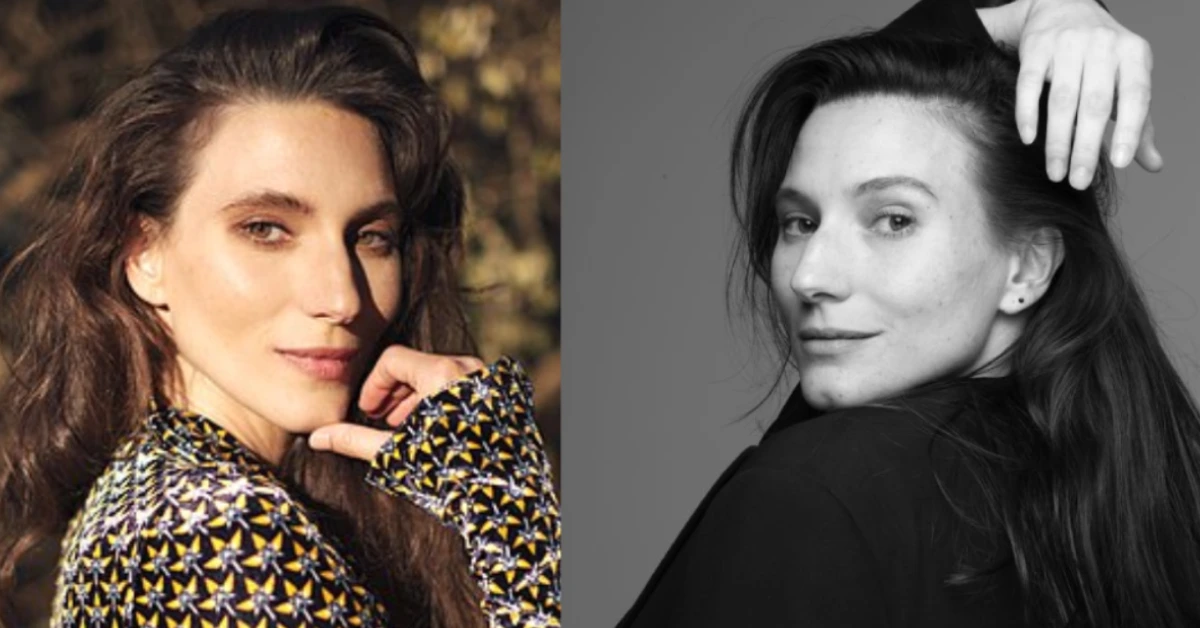You’ve probably scrolled past her face on Netflix without realizing it. Ortal Ben Shoshan isn’t chasing Hollywood’s red carpets—she’s quietly building something way more interesting. This Moroccan-Israeli actress turned “The Good Cop” into your weekend binge and proved that talent doesn’t need a PR machine to make noise.
Born in Ra’anana with Moroccan roots running deep, she’s the kind of performer who disappears into roles so completely you forget you’re watching acting. No manufactured drama. No thirst traps disguised as “behind-the-scenes content.” Just pure craft meeting opportunity in Israel’s thriving entertainment scene that’s finally getting its global moment.
Here’s why her journey matters—and why you should care even if you’ve never heard her name until now.
From Ra’anana to Tel Aviv: The Foundation Years
Ortal Ben Shoshan came into the world on January 1, 1987, in Ra’anana—a peaceful central Israeli city that’s more family suburbs than showbiz glitz. Her Moroccan-Jewish heritage wasn’t just background noise. It shaped how she sees characters, stories, and the cultural layers most actors miss completely when they’re phone-reading scripts.
Growing up, she wasn’t the kid posting monologues on early YouTube hoping for virality. She entertained family with impromptu performances—the kind of organic talent that either fades or finds proper training. Lucky for us, she chose the Performing Arts Studio in Tel Aviv, where Israel’s serious actors get molded.
Tel Aviv’s acting scene doesn’t mess around. You’re learning European techniques one week, Middle Eastern storytelling methods the next. That cross-cultural training became her secret weapon—versatility that lets her swing from broad comedy to nail-biting drama without breaking a sweat or her credibility.
Teachers spotted her work ethic immediately. Not the “I memorized my lines” bare minimum, but the obsessive character-building that separates working actors from stars. Her charisma helped, sure, but determination sealed the deal with casting directors hunting fresh faces who could actually deliver.
The Netflix Breakthrough: “The Good Cop” Changed Everything
Landing Korin in “Hashoter Hatov” (The Good Cop) in 2015 was Ortal Ben Shoshan’s entry ticket to bigger conversations. This wasn’t some obscure art film screened at 2 AM—it became a legitimate Netflix hit that introduced Israeli comedy to global audiences who thought they’d seen everything.
The show’s premise? A cop trying to stay ethical in a system that rewards the opposite. Think “Brooklyn Nine-Nine” energy mixed with that uncomfortable Larry David observation style, but rendered in Hebrew with English subtitles that actually captured the humor. Her comedic timing as Korin proved she understood something crucial: comedy works when it’s rooted in truth, not punchlines.
Thirty episodes gave her serious screen time to develop chemistry with the cast. International viewers started recognizing her face, associating it with quality Israeli content that could stand toe-to-toe with American productions. Netflix’s algorithm did its magic, and suddenly she’s part of the streaming conversation without moving to Los Angeles or changing her accent.
The role showcased natural charm without trying too hard. She brought warmth that made viewers actually care about her character’s subplot beyond the main storyline. That’s the difference between functional acting and performances people remember when scrolling for their next watch.
“Fullmoon”: Proving She Could Carry a Series Solo
Here’s where Ortal Ben Shoshan stopped being “that girl from the Netflix thing” and became a proper leading actress. “Fullmoon” ran from 2017 to 2018 across 96 episodes—a marathon that tests any performer’s range, consistency, and ability to keep audiences invested when you’re the reason they’re tuning in weekly.
Playing Bar required dramatic depth, “The Good Cop” never demanded. This was character work across multiple story arcs, where lazy acting gets exposed fast. Critics praised the nuance she brought to what easily could’ve been one-dimensional writing. She found layers, motivations, and emotional beats that elevated the entire production around her.
Ninety-six episodes is no joke. You’re essentially living as this character for two years, finding new angles every week while maintaining core consistency. The performance hinted at bigger potential—the kind of roles that challenge actors to stretch beyond comfort zones into territory where real growth happens.
Fans consider “Fullmoon” her defining work, and they’re not wrong. It’s where she proved leading-lady capabilities without the safety net of ensemble casts or comedy’s forgiveness. Drama demands precision, and she delivered it episode after episode without phoning it in once the initial buzz faded.
Genre-Hopping: “The Grave” and Beyond
Most actors find one lane and stick there because comfort pays bills. Ortal Ben Shoshan said nah—let’s see what else I can do. “The Grave” in 2019 threw her into supernatural mystery territory, where she conveyed fear and determination against plot elements requiring total commitment to the genre’s weird rules.
Eight episodes of mystery-sci-fi demonstrated versatility that prevents typecasting. She approached this project with the same seriousness as her dramatic work, understanding that genre material fails when actors wink at the camera. She played it straight, adding emotional weight to supernatural plots that live or die on the performer’s believability.
Then came “Shababnikim” in 2021, bringing her back to comedy but with sophisticated layers her earlier work didn’t explore. The show follows ultra-Orthodox Jewish students—sensitive cultural material requiring nuanced performances that respect the subject while finding humor. Her character Avigail grounded some of the show’s more outlandish moments with perspective that kept storylines from floating away.
This strategic role selection built a portfolio spanning comedy, drama, mystery, and culturally specific storytelling. She’s not chasing the biggest paycheck or most Instagram-friendly project. She’s building a career that’ll still matter when the algorithm changes and today’s trends become tomorrow’s cringe compilations.
The Tomer Capone Relationship: Privacy in the Spotlight
Israeli actors Ortal Ben Shoshan and Tomer Capone managed something rare in entertainment—a relationship lasting over a decade without becoming their brand. They met in acting school, built careers simultaneously, and kept their personal life exactly that: personal.
The March 2024 revelation surprised everyone: they’d been married for years after a secret overseas wedding. No magazine deals, no Instagram announcements, no monetizing their commitment for clicks and engagement. Just two people who decided their marriage mattered more than their marketing strategy.
Tomer’s international fame from “The Boys” could’ve easily turned them into tabloid fodder. Instead, they maintained boundaries while supporting each other’s careers—him in Hollywood productions, her anchoring Israeli television. Friends describe them as genuinely down-to-earth, focused on craft over celebrity, which tracks with everything else about how she operates.
Their approach reflects shared values about balancing public careers with private lives. In an industry pushing constant exposure as the path to relevance, they proved you can build successful acting careers without turning your relationship into content. That’s increasingly rare, and honestly, kind of refreshing.
What Makes Her Acting Style Actually Work
Watch Ortal Ben Shoshan disappear into roles, and you’ll notice something specific: she’s not performing at you. Whether comedy or drama, lead or supporting, she brings authenticity, making you forget there’s a camera recording this interaction. That naturalism stems from training meeting instinctive understanding of human behavior patterns.
Her style balances technical skill with gut instinct beautifully. Training provided tools for methodical character building—understanding motivations, backstory, and emotional triggers. But her behavioral intuition creates spontaneous moments that feel genuinely unscripted, like you’re watching real people instead of rehearsed dialogue delivery.
She approaches each role with a fresh perspective, avoiding the trap many actors fall into: playing themselves in different costumes with adjusted accents. This commitment to distinct characterization keeps performances from bleeding together. Compare her work across productions—you’ll see completely different energy, physicality, and emotional registers depending on what the story demands.
Being fluent in Hebrew and English removes language barriers, limiting many talented international performers. She moves between them effortlessly when roles require it, opening doors to Israeli productions and potentially international projects as streaming platforms demolish geographical limitations on content consumption.
Current Projects and What’s Next
As of 2025, she continues working on “Shababnikim’s” third season, providing career stability while allowing ongoing character development across multiple years. At 38, she’s entering that sweet spot where actresses take increasingly complex roles requiring life experience younger performers can’t quite nail yet.
Her trajectory impresses because of speed—from newcomer to sought-after talent in just a few years. That’s not luck; it’s talent meeting strategic opportunity selection. The combination suggests potential for larger international roles as streaming services hunt authentic cultural perspectives that resonate with diverse global audiences.
Streaming platforms breaking down geographical barriers create perfect conditions for performers like Ortal Ben Shoshan. She appeals to international viewers while bringing genuine cultural authenticity that can’t be faked or manufactured through method acting alone. Her bilingual abilities and cross-cultural understanding position her ideally for entertainment’s evolving landscape.
Industry trends increasingly favor content reflecting diverse perspectives beyond traditional Hollywood frameworks. Her background and skills fit this shift perfectly. The success of Israeli content on global platforms creates opportunities for established performers to reach audiences who never would’ve discovered their work pre-streaming era.
The Bigger Picture: What Her Success Means
From Ra’anana to Netflix screens worldwide, Ortal Ben Shoshan built a career worth studying if you care about authentic professional growth over manufactured celebrity. Her combination of cultural roots, technical training, and strategic choices established her as a significant voice in contemporary Israeli entertainment with expanding international recognition.
What makes her fascinating extends beyond acting abilities into how she navigates fame on her terms. In an industry demanding constant exposure, she maintains healthy boundaries while authentically connecting with audiences. This balance creates not just success but sustainability—the difference between burning bright briefly versus building something lasting.
Her versatility across genres positions her perfectly for future opportunities as global audiences embrace international content. Performers bringing cultural authenticity with universal appeal benefit from expanding markets hungry for fresh perspectives. She’s ready for that moment when it arrives, having done the work without cutting corners.
If you’re discovering her through this profile, start with “The Good Cop” on Netflix for comedy, then watch “Fullmoon” for dramatic range. Each performance reveals new dimensions, hinting at even greater potential waiting for the right project. Follow her Instagram for updates beyond the roles—she shares enough to connect without oversharing.
The entertainment landscape keeps shifting, but talent like this finds its audience eventually. Ortal Ben Shoshan proves you don’t need to be loudest in the room to build something remarkable. Sometimes the best move is doing exceptional work and letting quality speak for itself.

